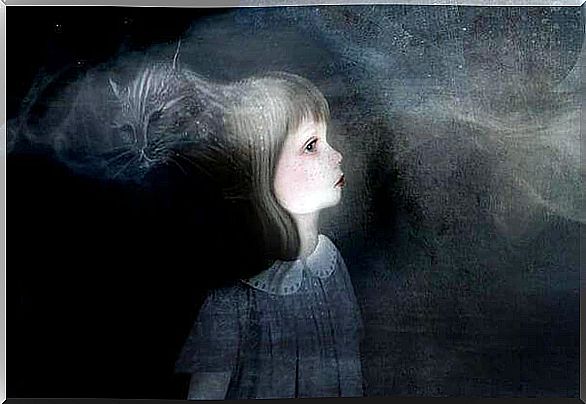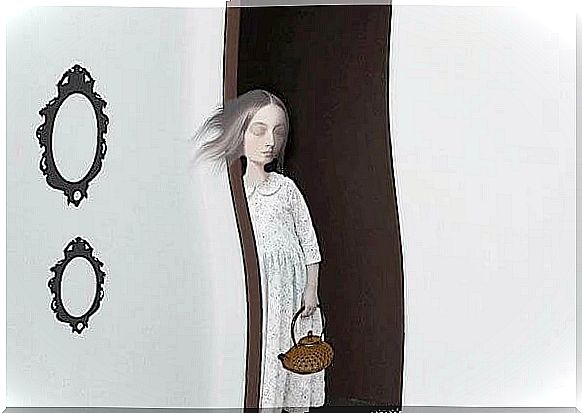7 Myths About Depression You Didn’t Know About

Despite being a very “common” disease that affects millions of people around the world, there are still some myths about depression that must be debunked.
Depression ends countless lives. Suicide rates have increased, especially with the crisis and the impossibility of families to cover their expenses or the chance of finding themselves on the street.
We often consider depression to be a state of sadness, but we couldn’t be more wrong. Today you will discover the 7 most deeply rooted myths about depression that contemplate a reality that we ourselves may not know about this disease.
Myths about depression
1. Depression is the same as sadness

The first of these myths about depression says something we all know. When we are told that a person is suffering from depression, we immediately think that he is very sad. Nothing further from reality.
We all feel sad at certain times in life, but there is a chasm between sadness and depression. Sadness is transient and temporary. Sooner or later it’s gone.
Depression is the opposite. It’s not a passing thing, it’s something that goes along with many other things: apathy, feeling of emptiness, pain… Depression doesn’t come alone, but accompanied by many other negative feelings that make your whole life gray.
2. Depression sufferers are weak
Suffering from depression does not mean that you are a weak person. When someone suffers from this disease, people see him as someone unable to face the difficulties, as someone who is not strong enough to face life. Depression is a psychological problem that turns life upside down, affecting us psychologically, biologically and socially.
Suffering from depression is not being weak. You didn’t choose to have depression! Don’t have a weak mind! This myth makes people isolate themselves and suffer their illness in complete silence, suffering even more, if at all possible.
3. Depression does not affect children and adolescents

Why would depression not affect the little ones? On the contrary. Children and teenagers seem to have more and more problems, both indoors and out. Broken families, bullying at school, problems getting accepted, misunderstanding…
We don’t know the degree of depression that can affect children and adolescents, we don’t know if it can be as strong as what adults suffer. What we do know is that many teenagers have already taken their lives, and that doesn’t happen because of a simple moment of sadness, but because of a hard phase of depression.
4. Depression disappears with time
Depression is not a passing thing, it is not something that disappears overnight. It’s something that lasts, that results in something so painful and unbearable that, at times, it makes the person commit suicide.
The person who suffers from depression requires professional help, because without it it is a little difficult to get out of it. Unless this person knows how to deal with the disease, professional help will be the way to get out of it.
Depression is not just any illness. It is an illness that destroys, breaks strength, hopes, the will to live. Time doesn’t cure everything. Time does not cure depression. Ignoring the disease doesn’t make it go away.
5. The disease is in your mind
Depression, far from what we might believe, affects not only the mind, but also the body in general. Insomnia, fatigue, chronic muscle pain, headaches, are some of the symptoms that may appear. If you believe that it is something that exists only in our heads, almost like an invention, be aware that this is a serious mistake. Depression is not just mental, it goes far beyond.
People who have never had contact with someone who has suffered from depression may think this way a little superficially, but no one wants to invent and wish to have an illness as serious as depression.
6. Men don’t have depression
One of the most deeply rooted and unfounded myths of depression. Depression affects men and women equally, it is not just a disease for women. We think about it when we believe it is a disease of weak people, as we mentioned earlier.
It’s true that depression affects women more than men, but that doesn’t imply that men don’t suffer from it. And yet, it’s true that depression in men is more dangerous. Men tend to mask depression better. But, one way or another, when we discover that a man was suffering from depression, in some cases it is already a little late: suicide has already taken hold.
7. Talking about the disease makes it worse

One of the most pervasive myths about depression among our acquaintances is that talking about the illness makes a person worse. Nonsense! If we consider it a taboo topic, of course we’ll avoid touching it, but a person with depression needs to talk.
That’s why they go to psychologists, because their own family avoids touching on the subject. It’s seen as something shameful, something that shouldn’t happen, something we believe will make it worse if we talk about it. Nothing further from reality. Taking an interest in the person with depression will allow you to be supportive and will make you understand some of their behaviors.
Do you know any other myths about depression that weren’t featured on this list? If yes, share with us. It’s time to eliminate all those lies that we believe are true about this well-known, but sometimes unknown, disease.
Images courtesy of Louise Robinson.









